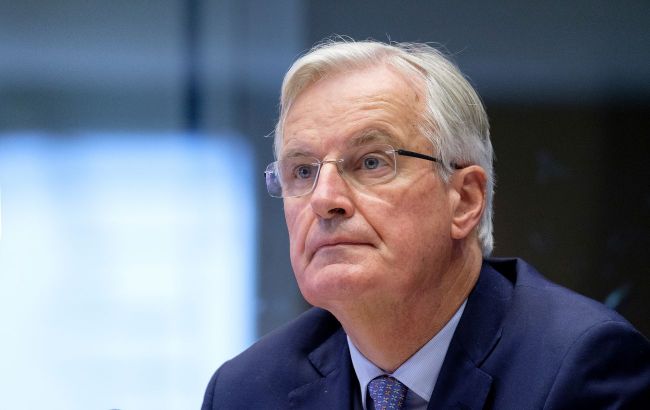France elects new prime minister: What is known about him
 Michel Barnier, Prime Minister of France (Getty Images)
Michel Barnier, Prime Minister of France (Getty Images)
Today, on September 5th, France elected a new Prime Minister: 73-year-old Michel Barnier, citing Le Figaro.
French President Emmanuel Macron asked Barnier to "form a united government that will serve the country and the French people."
"This appointment followed an unprecedented cycle of consultations, during which, in accordance with his constitutional duty, the President ensured that the Prime Minister and the future government would meet conditions that would allow them to be as stable as possible and to garner the widest possible support," said the President's administration.
Search for new Prime Minister
The appointment of Barnier came nearly two months after the parliamentary election results were announced and 51 days after the resignation of the former head of government, Gabriel Attal.
During the early parliamentary elections, the largest number of votes went to:
- The left-wing coalition "New People's Front";
- The far-right party "National Rally."
However, no political force managed to secure a majority to form a government independently.
According to the media, the search for a new head of government intensified on September 2nd. At that time, Macron changed his mind about potential candidates every few hours. The media mentioned several names, including:
- Bernard Cazeneuve, the former head of the socialist government;
- Thierry Baudet, head of the French Economic, Social, and Environmental Council.
In addition, the President also spoke with center-right politician and multiple-time government member Xavier Bertrand.
About Barnier
Ultimately, the choice fell on Barnier, who is more well-known in Brussels than in France, despite having served as a minister four times and twice as a European Commissioner.
Notably, he led the EU's negotiations with the UK over Brexit from 2016 to 2021.
Barnier's views on domestic policy are most closely aligned with the far-right. For instance, he called for a moratorium on immigration and asserted that France should restore its legal sovereignty and not be subject to the rulings of the European Court of Justice and the European Court of Human Rights.
Backstory
After the European Parliament elections, held in early June of this year, Macron dismissed the French National Assembly and announced early parliamentary elections. Following the second round of elections, Prime Minister Gabriel Attal announced his resignation.
At the end of July, the President said that he would not appoint a new government before mid-August.

